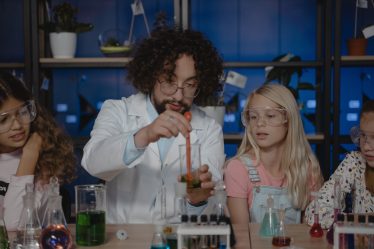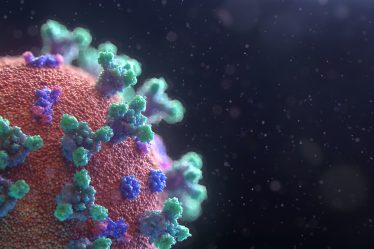
You might not realize it, but you’re constantly surrounded by invisible beings that are essential to your health and well-being. These unseen mentors are called microbes, and they play a vital role in maintaining the balance and harmony of our bodies and the environment. Microbes are tiny, single-celled organisms that are invisible to the naked eye, and they exist in staggering numbers all around us – on our skin, in our mouths, and deep within our bodies.
Introduction to the unseen tutors: Microbes
For most of human history, we’ve been unaware of these tiny companions and their life-sustaining functions. It’s only been in the last century or so that scientists have begun to uncover the incredible ways in which microbes influence our health and our world. As we continue to develop our understanding of these microscopic organisms, we are increasingly realizing that they are not just passive inhabitants of our bodies, but active participants in maintaining our well-being.
In this article, we’ll explore the various ways that microbes act as companions and tutors in maintaining our health, from their role in the immune system to their influence on digestion and mental health. We’ll also delve into the broader implications of microbes in our environment and how we can protect and nurture these unseen educators. By the end of this article, you’ll gain a newfound appreciation for the essential role that microbes play in our lives and the importance of embracing their unseen tutoring.
We also invite you to check out our blog post with “8 Exciting Science Experiments for Kids”.
The importance of microbes in human health
Microbes have been around for billions of years, and they’ve played a crucial role in shaping life on Earth. In fact, it’s believed that early microbes were responsible for creating the oxygen-rich atmosphere that allowed complex life to evolve. Today, microbes continue to play a vital role in maintaining our planet’s ecosystems, breaking down organic matter, and cycling nutrients through the environment.
In addition to their ecological importance, microbes are also essential to our health. Our bodies are home to trillions of these tiny organisms, which collectively make up what’s known as the human microbiome. This diverse community of bacteria, fungi, viruses, and other microbes live in a delicate balance within our bodies, performing essential functions that our own cells cannot.
Microbes and the immune system
The immune system is like an army, constantly on the lookout for foreign invaders and ready to mount a defense when needed. But like any good army, it needs proper training to be effective. This is where our microbial tutors come in. When we’re born, our immune system is immature and relatively inexperienced. As we grow and encounter various microbes, our immune system learns to recognize these organisms as either harmless or potentially dangerous.
This tutoring process begins early in life when our bodies are first colonized by microbes. Research shows that children raised in environments with a diverse array of microbes, such as farms or homes with pets, tend to have stronger immune systems than those raised in more sterile surroundings. This is because exposure to a wide variety of microbes helps to “train” the immune system, teaching it to recognize and respond appropriately to different types of threats.
In addition to their role in immune system training, microbes also help to maintain the delicate balance of our immune response. Some microbes can act as “peacekeepers,” preventing the immune system from overreacting to harmless substances like pollen or food proteins. This can help to prevent conditions such as allergies or autoimmune disorders, in which the immune system mistakenly attacks the body’s own tissues.
Microbes and digestion: The gut microbiome
Another vital area in which microbes help us is in the process of digestion. Our digestive system is home to a vast and diverse community of microbes known as the gut microbiome. These microscopic beings play a crucial role in breaking down and processing the food we eat, unlocking essential nutrients that our bodies need to function.
The gut microbiome is a complex ecosystem, with different species of microbes working together to break down various types of food. For example, some bacteria specialize in breaking down carbohydrates, while others are adept at processing fats or proteins. This cooperative process allows us to extract the maximum amount of nutrients from our food, ensuring that our bodies get the energy and building blocks they need to thrive.
In addition to their role in digestion, the gut microbiome also plays a crucial part in maintaining our overall health. Studies have shown that the balance of microbes in our gut can influence our risk of developing conditions such as obesity, diabetes, and even heart disease. By nurturing a healthy gut microbiome, we can help to ensure that our bodies remain in optimal condition and that our microbes can continue their vital work.
Microbes in maintaining mental health
The influence of microbes doesn’t stop at our physical health – they also play a role in maintaining our mental well-being. Research has shown that there is a strong connection between the health of our gut microbiome and our mental health, with imbalances in the gut microbiome being linked to conditions such as depression, anxiety, and even neurodegenerative disorders like Alzheimer’s disease.
This connection between the gut and the brain, often referred to as the “gut-brain axis,” is still not fully understood. However, it’s believed that microbes in the gut can produce chemicals that can influence the brain, such as neurotransmitters like serotonin and dopamine. These chemicals play a crucial role in regulating our mood, sleep, and appetite, among other functions.
By maintaining a healthy gut microbiome, we can help to support our mental well-being and ensure that our microbial companions are able to provide the essential guidance that our brains need to function optimally. This can be achieved through a balanced diet rich in diverse, whole foods that provide the nutrients and fiber that our gut microbes need to thrive.
How microbes can be our private teachers: Lessons from biology classes
Our understanding of the vital role that microbes play in our lives has grown significantly in recent years, thanks in large part to advances in scientific research. As we continue to delve into the fascinating world of the microbiome, we are uncovering new ways in which these microscopic companions can guide and support our health and well-being.
One of the most exciting areas of research in this field is the study of how microbes can be harnessed to improve our health and treat various conditions. For example, scientists are exploring the potential use of “microbial transplants” – transferring beneficial microbes from a healthy individual to someone with a disrupted microbiome – as a way to treat conditions such as inflammatory bowel disease or even obesity.
For more information on how a tutor can help make biology and microbes fun for kids, go to our blogpost on Unlocking the Wonders of Biology: How a Tutor Can Help Make Science Fun for Kids”.
The role of microbes in environmental well-being
Just as microbes play a vital role in maintaining our personal health, they also play a crucial part in maintaining the health of our planet. These microscopic organisms are essential components of the Earth’s ecosystems, responsible for processes such as nutrient cycling, decomposition of organic matter, and even the production of oxygen through photosynthesis.
By understanding and respecting the role that microbes play in our environment, we can learn valuable lessons about how to protect and nurture our planet. For example, the use of antibiotics and other antimicrobial agents in agriculture and industry can have a detrimental effect on the health of our soil and water systems, leading to imbalances in microbial communities and potentially harmful ecological consequences.
On the other hand, by embracing the power of microbes, we can work to create sustainable, regenerative systems that promote the health of both our bodies and the planet. For example, practices such as composting, crop rotation, and regenerative grazing can help to support healthy soil microbiomes, which in turn can lead to more resilient ecosystems and healthier food systems.
Protecting and nurturing our microbial tutors
Given the essential role that microbes play in our health and well-being, it’s crucial that we take steps to protect and nurture these unseen tutors. This starts with recognizing the ways in which our actions can impact the delicate balance of our microbiomes, both in our bodies and in the environment.
- Use antibiotics judiciously: Antibiotics and other antimicrobial agents can disrupt the balance of our gut microbiome and potentially contribute to the development of antibiotic-resistant bacteria. Therefore, it’s important to use them judiciously and with the guidance of a healthcare professional.
- Eat a balanced, whole-foods diet: Eating balanced, whole-foods diet rich in fiber and nutrients can support the health of our microbiomes and overall well-being.
- Stay active and minimize stress: Regular physical activity can have a positive impact on our microbiomes and overall health. Chronic stress can also negatively impact our microbiomes, so managing stress through relaxation techniques and mindfulness practices can be helpful.
- Support regenerative agriculture practices: Supporting regenerative agriculture practices can promote the health of our planet’s microbial communities and ecosystem health.
The future of microbial research and its impact on our well-being
As our understanding of the microbiome continues to grow, so too does the potential for microbial research to revolutionize the way we approach healthcare and environmental sustainability. From the development of novel treatments for diseases to the creation of regenerative, sustainable systems, the possibilities are endless.
One exciting area of research is the study of the microbiome’s role in cancer. Recent studies have shown that the composition of the gut microbiome can influence the efficacy of cancer treatments such as immunotherapy, opening up new avenues for personalized cancer care.
Another promising area of research is the development of microbial therapies for a range of conditions. For example, researchers are exploring the use of microbial therapies to treat conditions such as inflammatory bowel disease, eczema, and even depression.
As we continue to uncover the incredible ways in which microbes influence our health and our world, the future of microbial research looks bright. By embracing the power of our unseen tutors, we can create a healthier, more sustainable future for ourselves and our planet.
Conclusion: Embracing the essential role of microbes in our lives
Microbes may be invisible to the naked eye, but their influence on our health and well-being is anything but. From their role in immune system training to their impact on digestion, mental health, and even cancer treatment, these unseen tutors play an essential role in maintaining the balance and harmony of our bodies and our planet.
If you’re looking for a biology tutor who can provide your child with a stimulating, personalized learning experience, search through tutoring websites or platforms, for instance, using search terms such as “biology tutor Glasgow” or “biology tutor Sheffield.”
Enroll your child in a biology class if they prefer a less personalized approach to learning and enjoy making new friends. Search online for “biology classes London” or “biology lessons Manchester” to find nearby schools offering these classes.


